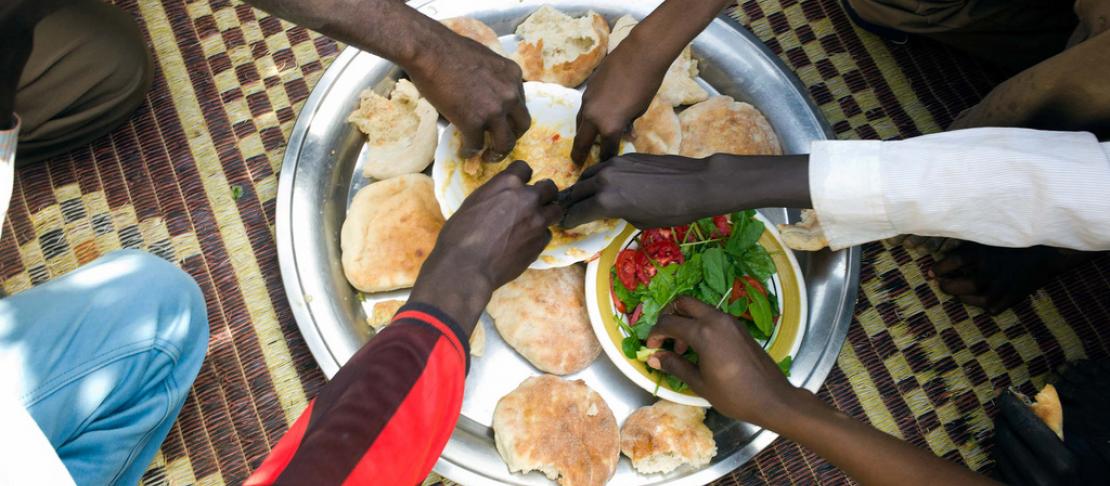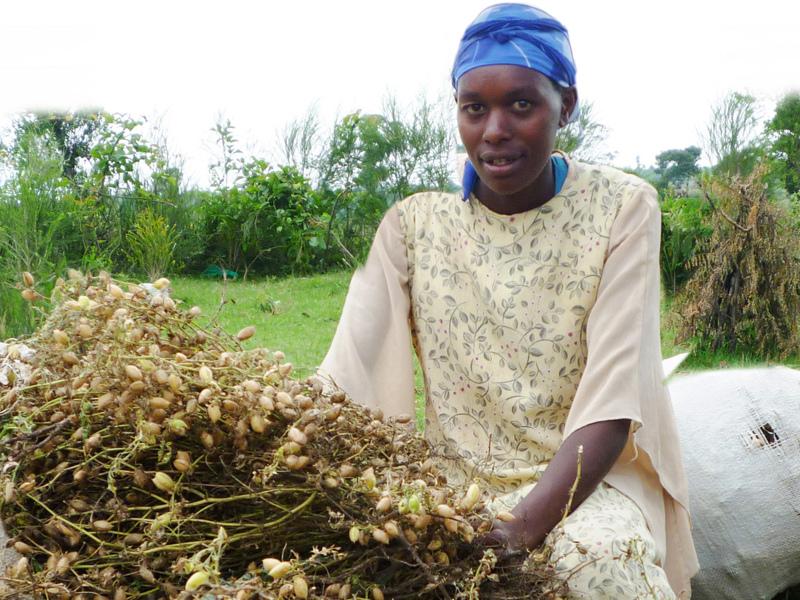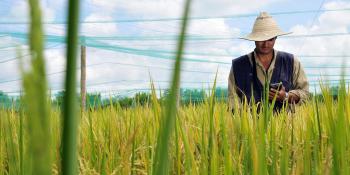Battling food insecurity with one shared plate

To cope with food insecurity, the villagers of Keur Médoune in Senegal are organizing "community meals", or shared dinners, as a way of coping with temporal food insecurity.
Low agricultural productivity and structural poverty have led to permanent food insecurity in most of the Sahel. This is also the case in Keur Medoune, a Senegalese village which is food insecure two to three months of the year.
To cope with the situation, village and community members organize what are known as community meals, or shared dinners, as a way to manage recurrent food shortages.
It was with a shared meal that the villagers received the community members of Tataguine, who came as part of the Farms of the Future project. Villagers joined to learn more about the experiences and challenges their peers were having with adaptating to a new and more variable climate.
What is a shared dinner?
A shared dinner is a collective evening meal prepared in a single household and eaten together by all the villagers. It is prepared in turn by each household in the village. With 34 households in Keur Medoune village, each household get to prepare one meal every 34th day when food shortage is rampant. Consequently, during the lean season which usually lasts June-August, each household only have to prepare the communal dinner 2-3 times.
The meal requires about 50 kg of millet, 9 kg of groundnuts, and spices. In addition, the millet needs to be pounded and ground. The household responsible for the dinner receives help from women of neighboring households in the village.
Learn more about food insecurity in Senegal via our Baseline Survey report
The spices are provided by the household responsible for the shared dinner, while the millet and groundnuts are from the collective farms. Expenses for pounding and grinding the millet are covered by the Village Fund.

To cater to the whole village of Keur Medoune, a mere 9 kg groundnuts is needed - in one sitting! Photo: ICRISAT
Two collective groundnut (4 ha) and millet (6 ha) farms are cultivated each year by the villagers to produce food for the shared dinner!
All the farming activities are carried out by all the villagers, with each villager bringing farming tools and draught animals, if available. Part of the by-products (groundnut straw) is sold and the proceeds put in the Village Fund. The rest is used for feeding draught animals.
Who is responsible for managing the shared dinner?
The shared dinner is organized and overlooked by of the village chief, who manages the harvest from the collective farms. He is, in turn, assisted by two committees of two members each responsible respectively for both distributing millet and groundnuts, and selling the farm produce.
Background to the "shared dinner" idea
The shared dinner originated from a meeting of Médoune Ngning, founder of the village, with the great marabout Cheikh Amadou Bamba. At that meeting, Médoune Ngning made a request to the marabout for the cohesion of his family. The shared dinner was thus initiated to strengthen family solidarity and cohesion.
This practice of shared dinner was fostered by the Serer culture. Indeed, it is customary in this ethnic group for brothers in a family to cultivate a collective farm whose harvest will be used for a collective meal during a certain period of the year.
The practice of shared diner also has some economic and socio-cultural advantages.
At the socio-cultural level, the shared dinner is a time of sharing and communion for all the villagers. It helps to strengthen the bonds of solidarity, understanding and cohesion within the village.
At the economic level, the shared dinner relieves every household of preparing dinner every day during the lean season. This has a significant impact on the household economy and its ability to cope with food shortage.
While this practice has obvious advantages, it should be noted that it is best adopted in a small village so as to minimize problems of organization. In addition, strong family ties or some socio-cultural homogeneity are good foundations to build on when organising these type of activities.
Dr Mathieu Ouédraogo is a visiting scientist with the CGIAR Research Program on Climate Change, Agriculture and Food Security (CCAFS) West Africa office, based at the ICRISAT office in Bamako, Mali. Diaminatou Sanogo is researcher at the Senegalese Institute for Agricultural Research.



